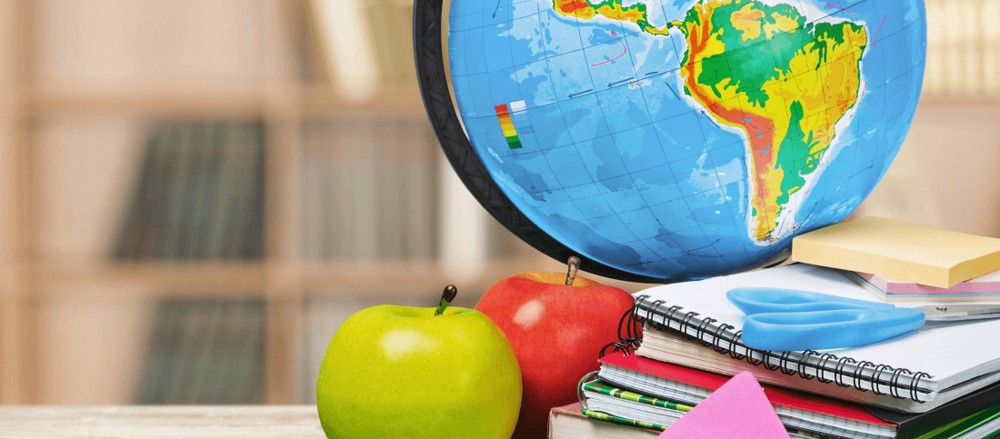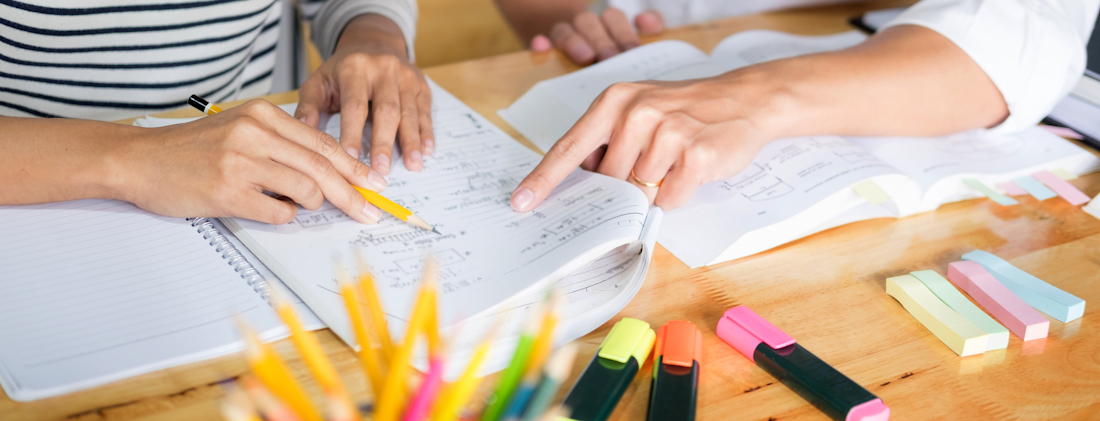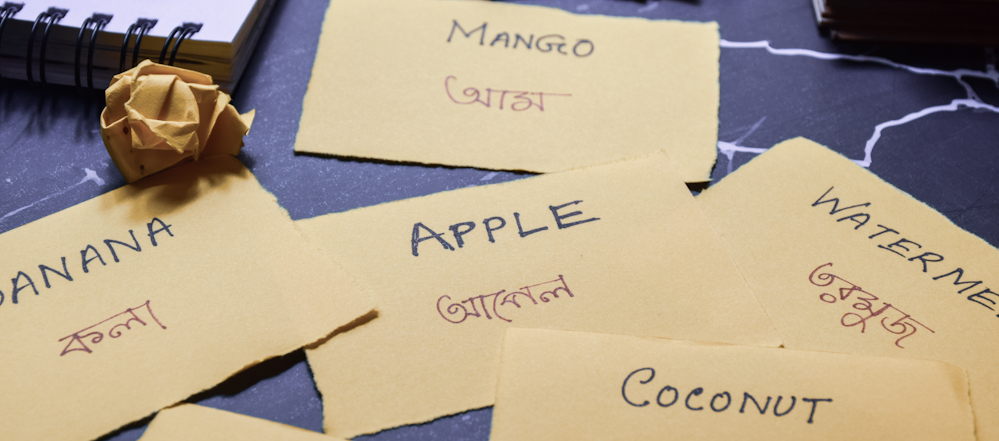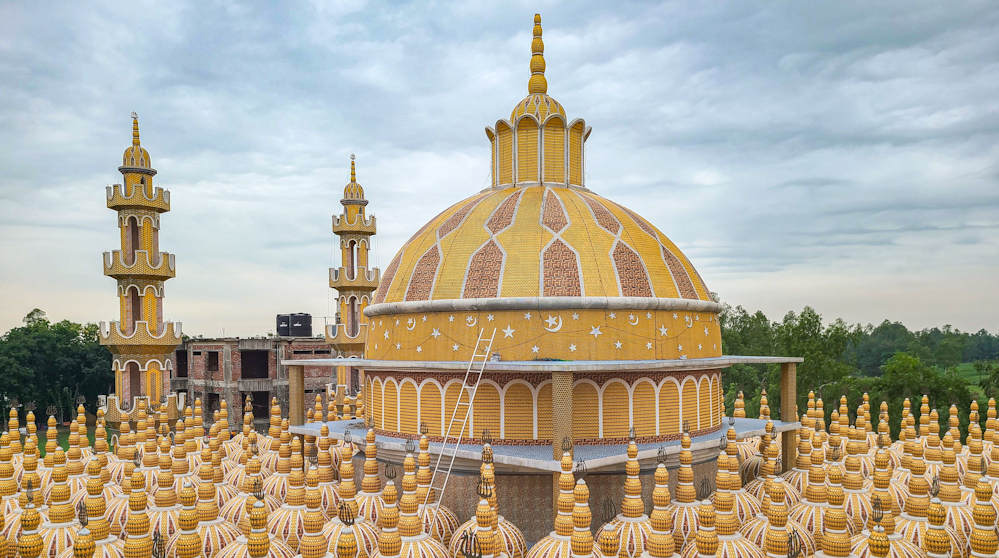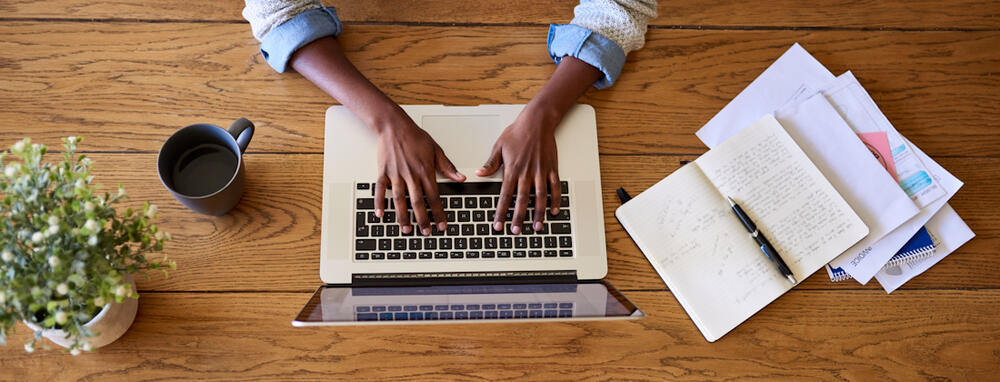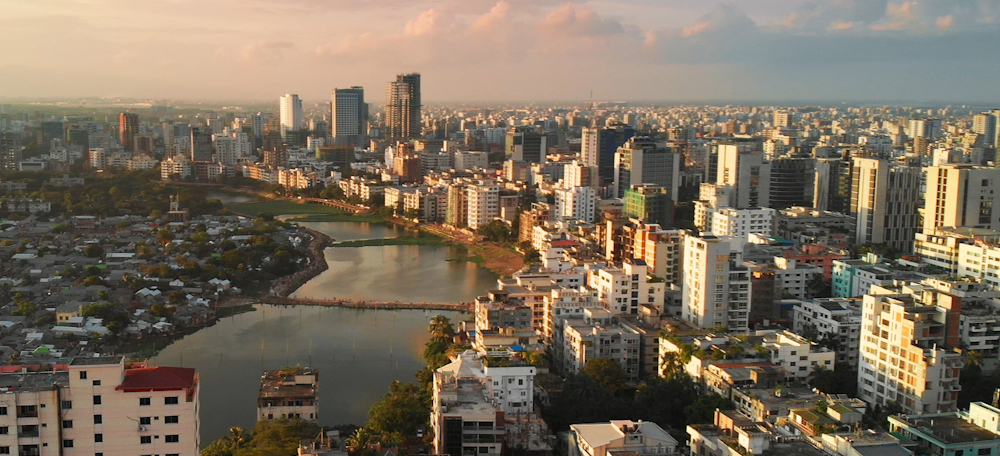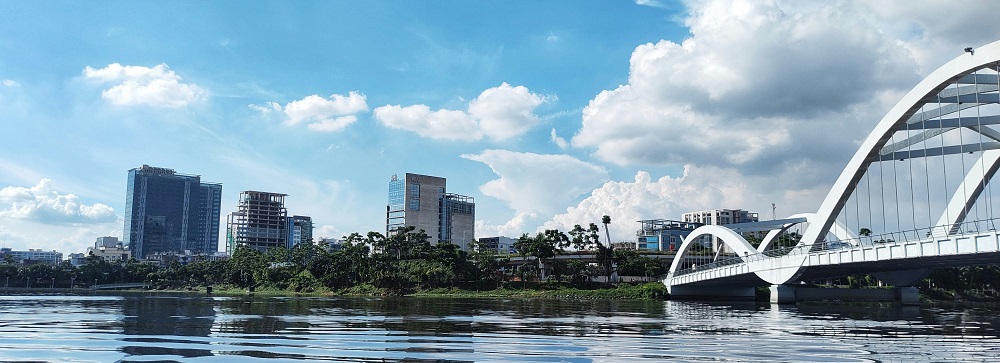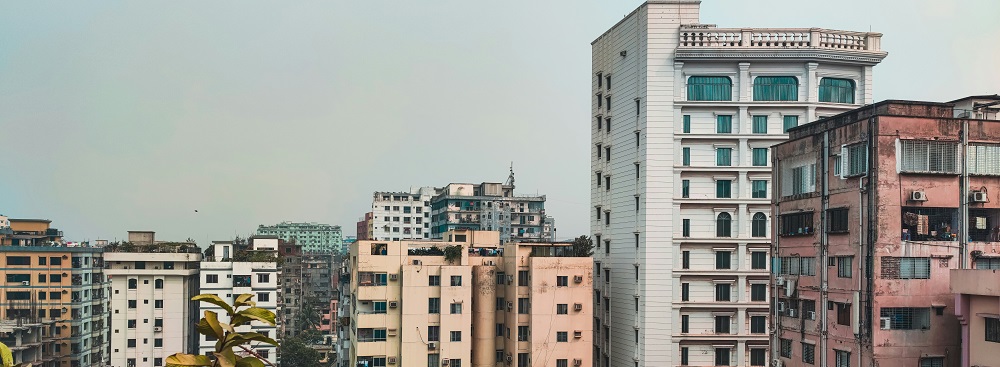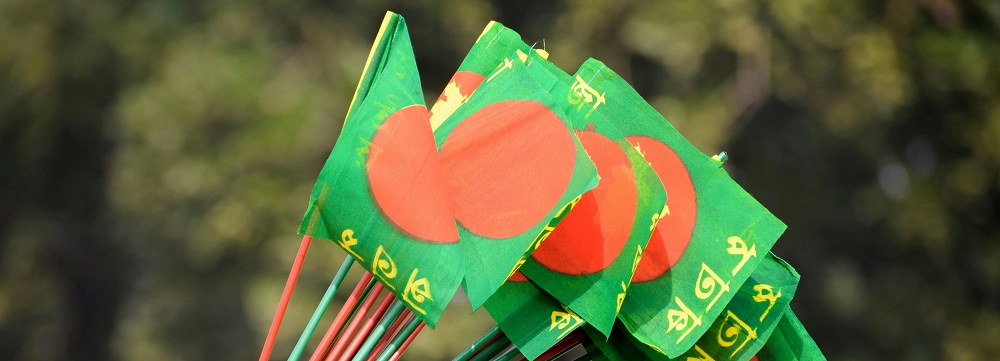Renting expat accommodation in Bangladesh can be both an adventure and a challenge. Unlike in many Western countries, where rental listings are streamlined and easily accessible online, the housing market in Bangladesh remains largely informal.
Expats frequently find themselves quoted higher rents than locals, making bargaining a crucial skill. Additionally, lease agreements are usually in Bengali, requiring translation or legal assistance to avoid misunderstandings.
Expect cultural quirks in housing that may take some adjustment. Many apartments have wet-style bathrooms, meaning the shower is not enclosed, causing the entire space to get wet. High-end properties often have dry bathrooms, but older buildings may still feature squat toilets.
Kitchens are another point of difference – many apartments include separate areas for light and heavy cooking due to the prominence of deep frying in local cuisine. Built-in ovens are uncommon, and most expats invest in standalone models. Expats also often employ domestic help, and many upscale apartments include separate quarters for live-in staff.
Types of accommodation in Bangladesh
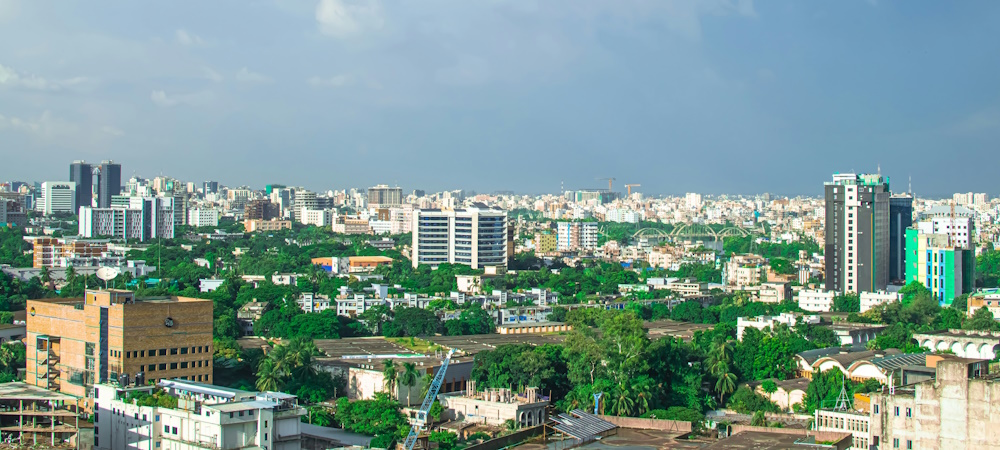
Expats in Bangladesh have several accommodation options, each varying in size, amenities, and location. Housing choices often depend on factors like length of stay, proximity to workplaces, and personal preferences regarding privacy and cultural immersion.
High-rise apartments dominate urban centres like Dhaka and Chittagong, especially in affluent areas such as Gulshan, Banani, and Baridhara. These buildings often feature security services, elevators, and parking facilities. Sizes range from one to four bedrooms, catering to individuals and families. Low-rise apartments, more common in older parts of the city, provide a local living experience but may lack some modern conveniences.
Detached houses are scarce in central areas but available in suburban regions. These homes offer more space, privacy, and sometimes gardens. Townhouses in select residential neighbourhoods strike a balance between apartment living and standalone homes.
Furnished vs unfurnished
Unfurnished rentals in Bangladesh may differ from what expats are used to in Western countries. Many properties listed as unfurnished include only the bare essentials – walls, floors, and sometimes basic fixtures like ceiling fans and light fittings. Built-in wardrobes, kitchen cabinets, and appliances like stoves or ovens are often absent. Air conditioning and water heaters are not always standard, so you may need to install these yourself.
Semi-furnished apartments often include light fixtures, ceiling fans, kitchen cabinets, and sometimes a basic cooking stove. This is a popular middle-ground option for expats planning a longer stay.
Furnished rentals are more expensive but offer convenience, particularly for those on short-term assignments. These typically include major furniture (beds, sofas, dining tables), appliances (refrigerators, microwaves, and washing machines), and sometimes even cutlery and bedding. Serviced apartments take this further, providing hotel-like services such as cleaning, laundry, and concierge assistance.
If you opt for an unfurnished unit, local retailers like Otobi, Hatil, and Navana Furniture offer a range of furnishing options, while electronics chains such as Walton, Singer, and Transcom stock home appliances.
Short lets
Short-term rentals in Bangladesh cater to business travellers, digital nomads, and expats in transition. These rentals, which include serviced apartments, Airbnb-style properties, and corporate housing, are widely available in major cities like Dhaka and Chittagong.
Most short-term rentals come fully furnished with essential amenities, including high-speed internet, kitchen appliances, and housekeeping services. Utility costs are often included in the rent, making them a hassle-free option. Many serviced apartments offer additional perks like security, concierge services, and laundry facilities.
To secure a short-term rental, expats can use platforms such as HostBangla and Serviced Apartment BD, which specialise in temporary housing solutions. Before committing, always verify rental details, including cancellation policies and deposit requirements.
Useful links
Finding accommodation in Bangladesh
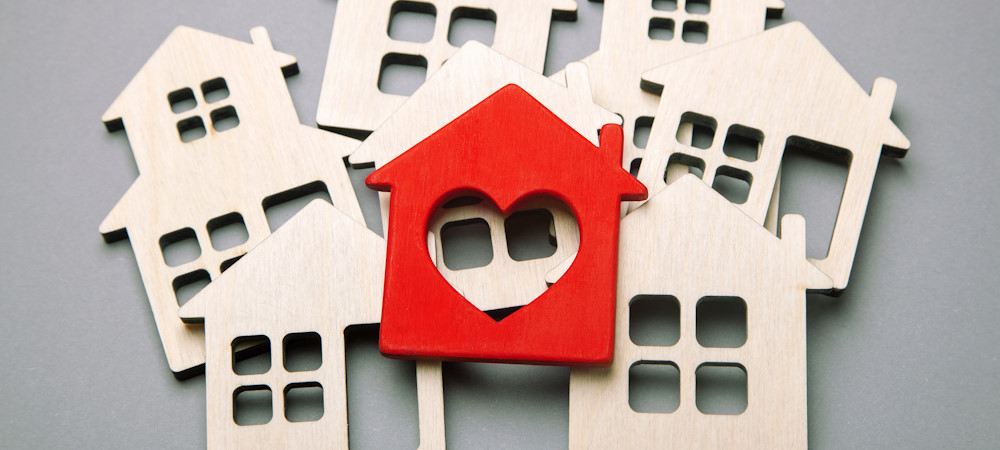
Searching for accommodation in Bangladesh can be daunting. The rental market is largely informal, and many landlords rely on word-of-mouth or real estate agents rather than structured online platforms. This makes negotiating the process more challenging, particularly for expats unfamiliar with the local system.
Be cautious of misleading property listings, hidden costs, and unclear lease terms. Visit properties in person, verify what amenities are included, and ensure lease agreements are transparent – preferably in English.
Engaging reputable real estate agents, verifying the landlord’s ownership before making payments, and having lease agreements reviewed by a legal professional can help prevent issues. Most rental agents in Bangladesh primarily speak Bengali, although some real estate agencies in major cities like Dhaka and Chittagong offer services in English.
Real estate agents in Bangladesh usually charge a commission equivalent to one month’s rent. Some agents may attempt to charge more, especially if they realise the tenant is unfamiliar with local norms, so it’s advisable to clarify fees upfront and seek multiple quotes.
Online property portals such as RENTS.com.bd and Banglamart provide a platform for finding listings, but it’s important to verify their authenticity before making any commitments. Many expats also rely on social media groups, particularly Facebook, where property owners and agents regularly post available rentals.
Many international organisations, NGOs, and multinational companies provide housing support for their foreign employees. This can include fully covered accommodations, stipends, or access to a list of pre-vetted rental properties. If you are relocating for work, it’s worth checking whether your employer offers assistance in finding a suitable place to live.
Useful links
Renting accommodation in Bangladesh
Renting accommodation in Bangladesh involves finding a balance between formal lease agreements and informal negotiations. While written contracts are standard, personal rapport with landlords can influence the terms. Many landlords prioritise reliability and financial stability, so demonstrating a steady income and responsible tenancy can be advantageous.
Politeness and patience are key when negotiating lease terms. Aggressive bargaining is generally frowned upon, and maintaining a respectful tone can improve the overall experience. Landlords may be more flexible with expats who express a long-term commitment or willingness to take good care of the property.
Rent is typically paid monthly, although some landlords may request quarterly payments in advance. Payment methods vary, with bank transfers being the most preferred due to transparency and record-keeping. Mobile financial services like bKash are also popular, while some landlords in less urbanised areas still prefer cash payments.
Making an application
Expats renting in Bangladesh generally need to provide essential documents to secure a lease. These typically include a valid passport and visa, proof of employment (such as an employment contract or salary confirmation letter), and sometimes financial statements to demonstrate income stability. While references from previous landlords are not always mandatory, they can enhance your credibility.
If you are new to Bangladesh and lack local references or a credit history, offering a higher security deposit or advance rent payments can help reassure landlords. Some expats may also secure a company guarantee, where their employer vouches for them.
Deposit
In Bangladesh, security deposits typically range from one to three months’ rent, depending on the property and landlord. While the Premises Rent Control Act of 1991 stipulates that landlords should not demand more than one month’s rent as a deposit, in practice, especially in high-demand areas, landlords often request higher amounts. For premium properties, multiple months’ rent upfront is common.
Security deposits are refundable, provided there is no damage beyond normal wear and tear, no outstanding utility bills and the tenant has given the required notice before vacating. Since the law does not specify a mandatory timeframe for deposit refunds, it is advisable to include a clear clause in the lease agreement stating when and how the deposit will be returned.
Leases
Lease agreements in Bangladesh typically last 12 months. Some landlords prefer longer commitments to ensure tenant stability. Open-ended leases are not very common, and renewal terms should be discussed before the contract expires.
Terminating the lease
The standard notice period for terminating a lease in Bangladesh is three months, applicable to both tenants and landlords. This period allows sufficient time for both parties to make necessary arrangements. The requirement remains the same throughout the lease duration, including the first year.
To avoid deposit deductions, document the property’s condition upon move-in and move-out. Using a checklist and taking photographs can help prevent disputes over damage claims.
Depending on the lease terms, tenants may face penalties for early lease termination, such as losing their security deposit or paying a financial penalty. Some agreements permit subletting, which may provide a viable alternative if an early exit is necessary. It is always advisable to discuss options with the landlord to find a mutually agreeable solution.
Utilities in Bangladesh

When renting accommodation in Bangladesh, understanding how utilities are managed is essential. In most cases, tenants are responsible for paying for electricity, gas, and water separately, though some high-end rentals or serviced apartments may include partial utility coverage in the rent. Confirm your specific utility responsibilities with your landlord before signing the lease.
Electricity
Electricity in Bangladesh is provided by several distribution companies, depending on the region. Dhaka's main providers are Dhaka Power Distribution Company Limited (DPDC) and Dhaka Electric Supply Company Limited (DESCO). Outside Dhaka, the Bangladesh Power Development Board (BPDB) oversees distribution.
Most households use postpaid meters, where bills are issued at the end of the billing cycle based on consumption. However, prepaid meters are becoming more common, allowing tenants to pay in advance and monitor their usage to avoid unexpected bills.
Load shedding – scheduled power outages – sometimes occurs, particularly during peak hours or in certain regions. Many apartment buildings have backup generators or inverters to mitigate power interruptions.
Utility bills can be paid through various methods, including mobile financial services like bKash and Nagad, online banking, or in-person at designated bill payment centres. Before moving in, confirm the meter type, average consumption rates, and preferred payment methods with your landlord to avoid any confusion.
Gas
Piped natural gas is available in many urban areas, particularly in Dhaka and Chittagong, though not all neighbourhoods have access to this service. In areas without piped connections, Liquefied Petroleum Gas (LPG) cylinders are the standard alternative for cooking and heating water.
Safety is a primary concern when using LPG cylinders. They should always be installed by a qualified professional, and hoses and connections should be checked regularly for leaks. Proper ventilation is vital to prevent gas accumulation in case of a leak, and cylinders should be stored upright and away from heat sources.
For piped gas, tenants typically receive monthly bills based on usage. LPG cylinders, on the other hand, must be purchased directly from suppliers or authorised dealers as needed.
Water
Water supply and sewage services in major cities are managed by Water Supply and Sewerage Authorities (WASA), with Dhaka WASA handling the capital’s water system. Tenants usually pay for water separately from rent, receiving monthly bills based on consumption.
Tap water in Bangladesh is not generally considered safe for drinking without treatment. Most residents use water filtration systems or rely on bottled water for drinking.
Bins and recycling
Waste collection services vary by neighbourhood. Some areas offer door-to-door collection, while others require residents to dispose of waste at communal collection points. Pickup schedules differ across locations, so it’s important to check locally for designated collection days.
Recycling infrastructure in Bangladesh is still developing, but informal waste collection and recycling are common. Waste collectors often separate recyclable materials, selling them to processing centres. To understand waste disposal practices in your specific neighbourhood, consult with neighbours, community groups, or property managers.
Internet
Reliable internet access is essential for expats living in Bangladesh. In major cities like Dhaka and Chittagong, fibre-optic broadband is widely available, offering stable speeds suitable for work, streaming, and gaming. Some of the leading internet service providers include Amber IT, Carnival Internet, and RanksNet.
To set up home internet, expats usually need to provide a valid passport and proof of address (rental agreement or utility bill). Installation times vary but typically take a few days to a week.
Mobile data serves as a practical backup option, with major telecom providers like Grameenphone, Robi, and Banglalink offering extensive 4G coverage. 5G is still in its early stages in Bangladesh.
Useful links
- DPDC, DESCO, and Bangladesh Power Development Board
- Titas Gas Transmission and Distribution Company Limited, and Bashundhara LP Gas Limited
- Dhaka WASA, and Chittagong WASA
- Amber IT, Carnival Internet, RanksNet, and BTCL
- Grameenphone, Robi, Banglalink, and Teletalk Bangladesh Limited
